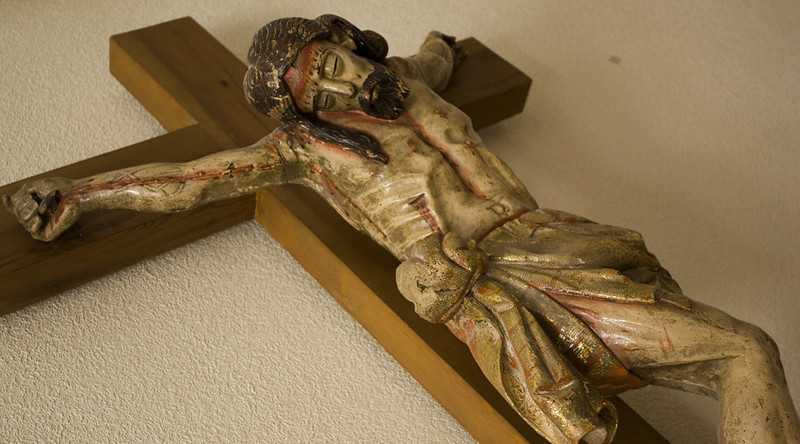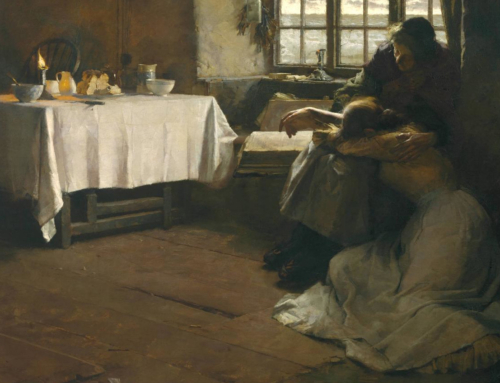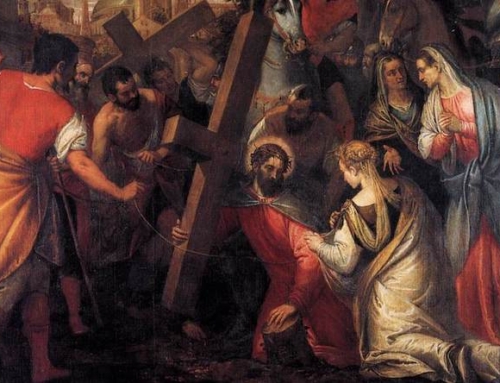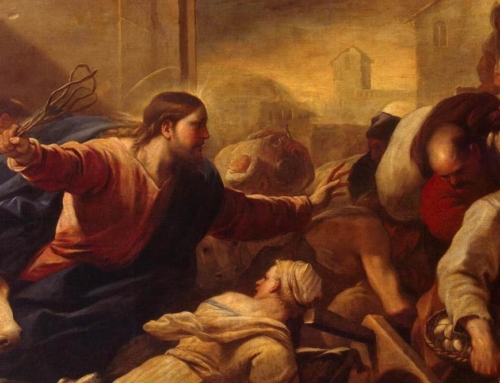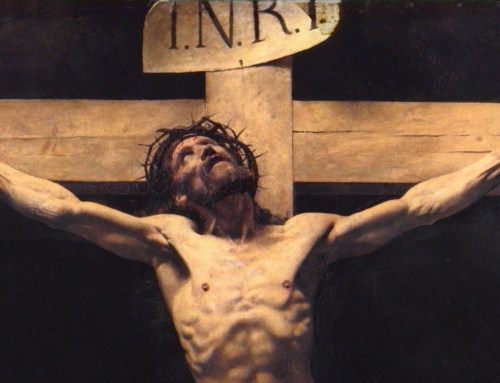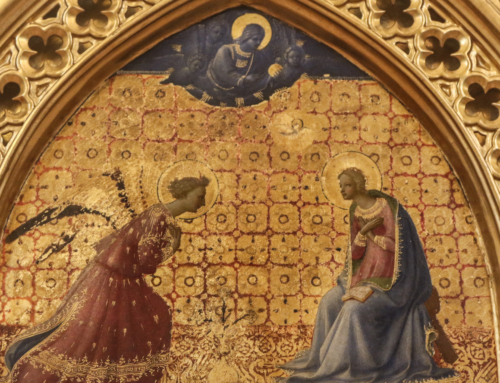You are looking at the most joyful man in all of history, undergoing his most joyful hour: Jesus Christ on his Cross. It’s an uncomfortable truth, but it’s the truth nonetheless. Jesus was most joyful during his earthly life when he underwent his Passion and Crucifixion. But how? How could Jesus be joyful in the midst of unspeakable physical, emotional, and spiritual suffering? Can we who have been baptized into Christ’s Passion, death, and Resurrection be joyful in the midst of suffering? Jesus was most joyful during his earthly life in the midst of his agony because it was the height of his love for the Father, and the fruit of love is always joy.
The Cross is the height of Jesus’ love for the Father and for men. There is no greater manifestation of love in all of history than the Passion, Crucifixion, and death of Jesus Christ. This is because Jesus Christ is not just a man. He is the God-man. He is the Word made flesh—the second Person of the Most Holy Trinity who, compelled by his superabundant love, became man so that, through his Body and Blood, man might become God. Love made God man, and love led him to the Cross.
Divine love was not satisfied to save us with the wood of the manger. Divine love went further—it went to the wood of the Cross. Jesus was made “perfect through suffering,” real and true suffering in his real and true humanity; and he loved us “to the end,” even unto “death, death on a cross” (Heb 2:10; John 13:1; Phil 2:8). This was the hour for which Jesus lived; the will of the Father which Jesus longed to fulfill; and the passover which Jesus longed to eat (John 12:27; 4:34; Luke 22:15).
On the Cross, in the midst of the most penetrating suffering ever known to mankind, Jesus’ love was at its height precisely because he was fulfilling the will of the Father, namely, his glorification and our justification and sanctification: “For our sake he made him to be sin who knew no sin, so that in him we might become the righteousness of God” (2 Cor 5:21). Jesus’ love, though perfect from the moment of his conception in the womb of the Blessed Virgin Mary, was consummated in its perfection by his superabundant sacrifice on the cross.
It is on the Cross, Jesus’ greatest manifestation of his love, that Jesus’ human will is most perfectly united to the divine will—for what is love but the union of wills between lover and beloved? The lover and the beloved who are in love possess one another in and through their love for the other. It is love that unites the lover and beloved so that the two become one. The result of this union of wills in love is joy. Joy, then, is nothing more and nothing less than delighting and resting in what one possesses in love.
Jesus Christ is the most joyful man when he is on his Cross because the Cross is the highest manifestation of his love for the Father. On the Cross, Jesus’ human will and the divine will are united superabundantly in love—a love which bears inexplicable joy. Jesus’ love and joy are not to be equated with fleeting feelings of happiness or surface level peace, however; rather, Jesus’ love and joy are gifts of another order, a divine order, given to those who are united to Christ in living faith. The divine gifts that Jesus gives to those who are united to him in living faith transcend feelings and anything that could separate us from the love of God—and for this reason we “rejoice always” (1 Thess 5:16).
✠
Photo by Fr. Lawrence Lew, O.P. (used with permission)

